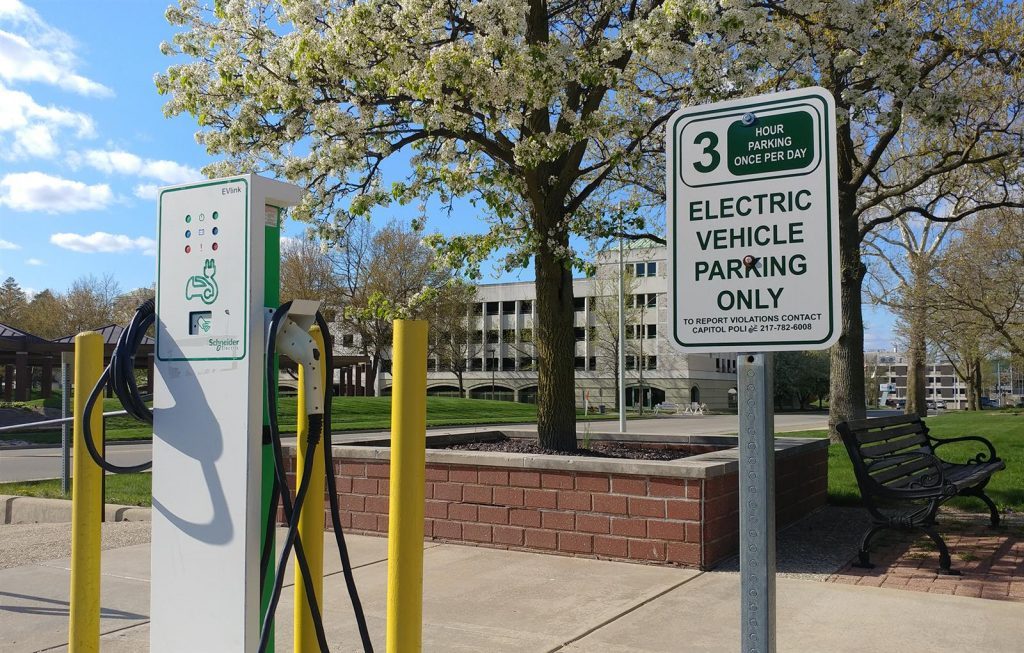
Regulatory work behind 1 million EV push in full swing in Illinois
By JERRY NOWICKI
Capitol News Illinois
jnowicki@capitolnewsillinois.com
SPRINGFIELD – Ten months after Illinois lawmakers passed the Climate and Equitable Jobs Act which set a goal of putting 1 million electric vehicles on state roads by the end of the decade, state agencies are engaged in a flurry of regulatory planning aimed at meeting those goals.
The effort to electrify the state’s transportation sector and ensure the power grid can meet increased demand involves the Illinois Commerce Commission, Illinois Environmental Protection Agency, the state’s Department of Transportation, and Illinois’ two largest public utilities, among others.
Between those agencies and utilities, there’s hundreds of millions of federal, state and ratepayer dollars available for EV charging infrastructure, vehicle rebates and other plans aimed at accelerating EV adoption.
While the regulatory force behind CEJA lies with several agencies, the task of ensuring all of them are working together lies in the hands of the state’s electric vehicles coordinator.
That person is Megha Lakhchaura, who was appointed to the position officially on July 1 at a salary of $180,000 after serving in an administrative capacity at IEPA since April.
She has previously served as the director of policy in North America for the electric vehicle supply company EVBox, policy director for the rooftop solar and battery storage provider Sunrun Inc., and public utilities regulatory analyst for the California Public Utilities Commission.
It’s a diverse private sector and regulatory experience which she said has helped her hit the ground running.
“So the job is basically figuring out how all of these pots of money work together,” Lakhchaura said in a recent interview with Capitol News Illinois. “What are the pieces that we have to look at? Where do we put our resources? How do we think of things comprehensively and having a comprehensive charging strategy for the state?”
She praised the top-down vision laid out by the governor’s office and CEJA but said lawmakers and regulators will have to continue to adapt to meet the 1 million EV goal.
“CEJA is a good starting step,” she said. “I think that it sets up some very good practices. …It puts out a road for utilities, it puts out a rebate for vehicles, for charging. It’s a good first step, but we’re going to have to do more to get to 1 million vehicles.”
‘A lot of demand’
It’s a time of rapid growth for EV adoption, Lakhchaura said, with nearly 9,000 EVs added to state roads in the first seven months of this year, bringing the total number licensed in Illinois to 46,645 as of July 15.
Still, there are challenges.
“There is a lot of demand, there’s no doubt about it,” she said. “I think the problem right now is price, and buying an EV at this point in time, it’s very difficult. They’re sold out, there’s not enough that are being produced to meet these kinds of demands.”
To defray cost, the state on July 1 launched a rebate program through the IEPA that will provide up to $4,000 off for the purchase of an all-electric vehicle and $1,500 for an all-electric motorcycle. The current application window runs through Sept. 30, and those who purchased and EV must apply online within 90 days of the purchase date.
As of July 1, the Electric Vehicle Rebate Fund had a balance of about $17.9 million, with funds to be distributed once the portal closes.
While many EVs remain expensive, Lakhchaura mentioned a cheaper model, the Chevy Bolt, which retails for just under $26,000 for a base model on the company’s website. If a purchaser receives a state rebate on top of a $7,500 federal tax credit available for certain EV models, she said, the price point becomes more reasonable.
But there are still other challenges, such as a global shortage of lithium and other materials needed for EV batteries, she added.
It’s something being addressed on the national stage with a $3.1 billion investment from the federal bipartisan infrastructure law to improve domestic commercial facilities that produce EV batteries and their parts. As well, President Joe Biden invoked the Defense Production Act earlier this year, an effort to increase U.S. independence in mining for EV-related minerals.
“Yes, in the short-term, the next two, three years or so, demand is causing a shortage,” Lakhchaura said. “But on the other hand, we are also gearing up and trying to solve this problem, not only nationally but globally.”
Negotiations in Congress were still ongoing Friday for an inflation reduction plan which included $369 billion in spending to combat climate change, including electrification measures and renewable energy investment.
Electrification plans
On the state side, Lakhchaura said CEJA was meant to be forward-thinking, ensuring that the grid and state policies adapt along with the rapidly evolving technology.
A key piece in that effort is a requirement that the state’s two largest public utilities adopt beneficial electrification plans for ratepayer-funded investment in incentives, education and infrastructure to support electrification.
Among other things, the plans must focus on incentivizing EV charging during off-peak hours to limit the effect on the grid, and electrifying heavy vehicle fleets, public transportation and school buses.
CEJA also requires charging infrastructure investment, with 40 percent of the plans’ spending in that area to be done in equity investment eligible communities, where pollution has historically been higher and economic opportunities fewer.
Funding for the plans can’t exceed a 1 percent charge on the distribution portion of a ratepayer bill, and the ICC can approve, deny or require changes to the plans.
For Commonwealth Edison, serving 4 million customers in northern Illinois, the proposed plan includes $300 million in programs from 2023 through 2025.
Ameren Illinois, serving 1 million customers in central and southern Illinois, proposed spending $11.8 million through 2024.
ComEd’s initial plan included, among other facets:
$15 million annually for residential ratepayer programs, including EV and charging rebates, a new hourly pricing program, and incentives for electrified household items
$63 million annually for commercial and industrial programs, focusing on commercial fleet and school bus electrification
$9 million annually for outreach on the available programs
$5 million annually for other pilot programs.
Ameren Illinois’ plan is less extensive, including $2.2 million in current- and previous-year spending, and about $9.6 million in 2023 and 2024. It consists of some new programs and changes to existing programs to allow greater participation for multi-family homes.
The plan included, among other things:
Expanding existing time-of-use rate offerings and increasing outreach efforts
A driver education program offering financial assistance for EVs and charging equipment in schools in equity investment communities
A fleet assessment program for private fleet, education, and transit customers.
The Ameren plan also mentioned its participation in the rollout of a national pilot program aimed at providing ride sharing opportunities and low-cost EV rentals for inhabitants of multi-family homes.
Regulatory oversight
The ICC this month initiated a review of those ratepayer-funded plans, an expected step in the agency’s regulatory role to ensure the plans are meeting statutory goals on a cost-effective basis.
Outside organizations, such as the National Resource Defense Council, the Environmental Law and Policy Center and others, will have the opportunity to suggest changes to the plans before the ICC approves them sometime next year.
The utilities must then file an updated plan by July 1, 2024, and every three years thereafter.
Along with overseeing the electrification plans, the ICC also last month issued the first draft of its Renewable Energy Access Plan, a long-term view as to what level of stress electrification might add to the grid and how to alleviate it.
One major challenge the REAP seeks to address is the fact that widespread electrification of vehicle fleets, household appliances and more could require between 64 and 450 added terawatt-hours of electricity production in the state – a massive increase considering CEJA also aims to take fossil fuels offline by 2045.
A follow-up draft is due out later this year and will seek to fine-tune the load forecasting projections and determine how to best prepare for increased demand.
Other resources
The state will also have a role in determining how $148 million in federal funding for charging infrastructure will be allocated. The Illinois Department of Transportation began that process with a public meeting for stakeholder input on July 28.
The money is meant to create charging “corridors” to ensure chargers are spaced at least every 50 miles on key transportation routes throughout the U.S.
The median range for an electric vehicle currently is 250 miles, enough to get from Chicago to Springfield with 50 miles to spare.
When it comes to rolling out chargers, Lakhchaura said priorities include building out corridors and ensuring charging infrastructure is available in areas where at-home charging is not feasible.
That means bulking up on public Level 2 chargers, which can charge a vehicle in 6-8 hours, as well as fast chargers, which take 15-30 minutes to charge an EV.
The state will look to increase charging accessibility in areas with many multi-family homes, as well as on corridors to reduce range anxiety, Lakhchaura said.
IEPA will also oversee a charging grant program funded with $70 million from the state’s Rebuild Illinois capital infrastructure plan to launch at an unspecified date.
The state also announced a new plan in May for spending the remaining $84 million Illinois received in a national settlement with the car manufacturer Volkswagen. It includes approximately $27 million for all-electric public transit buses and commuter locomotives, $27 million for all-electric school buses, $16 million for all-electric freight trucks and 12.7 million for light-duty electric charging infrastructure.
Lakhchaura also noted the recent federal bipartisan infrastructure plan includes $5 billion for nationwide school bus electrification and $2.5 billion for community charging grants.
The Department of Commerce and Economic Opportunity, meanwhile, is overseeing the Reimagining Electric Vehicles Act, which aims to incentivize companies that manufacture EVs and their parts to relocate to Illinois.
To date, no contracts have been signed since the measure passed eight months ago, although outreach continues.
Capitol News Illinois is a nonprofit, nonpartisan news service covering state government that is distributed to more than 400 newspapers statewide. It is funded primarily by the Illinois Press Foundation and the Robert R. McCormick Foundation.
Local News
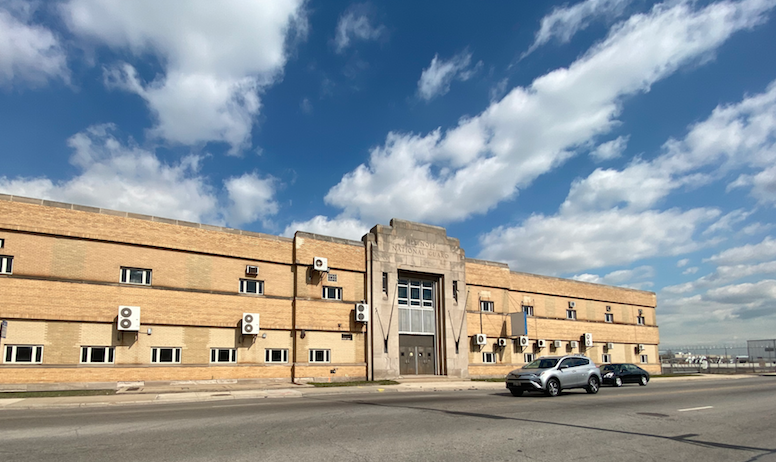
Pols want 63rd St. armory for new police HQ
Spread the love. Porfirio, Guerrero-Cuellar push plan in Springfield . By Tim Hadac Any plans the Chicago Department of Aviation may have had for the vacant Army National Guard Midway Armory, 5400 W. 63rd St., may be grounded, at least for now. Several elected officials are eyeing the parcel as the headquarters of a new…

Her back against the wall, Stacy needs help
Spread the love. By Tim Hadac Editor Clear-Ridge Reporter & NewsHound (708)-496-0265 . Clearing and Garfield Ridge have earned a reputation as a place where people look out for each other—and that sometimes means caring for each other in times of need. Today, I want to talk about one such person, who sure could use…

It’s (pizza) party time at OLS
Spread the love. Third graders at Our Lady of the Snows School break into cheers as they learn they’ve won a pizza party for selling more raffle booklets than any other class. The recent Grand Raffle fundraiser brought in about $6,000. Parents looking for a grade school for their sons and daughters for 2024-25 are…
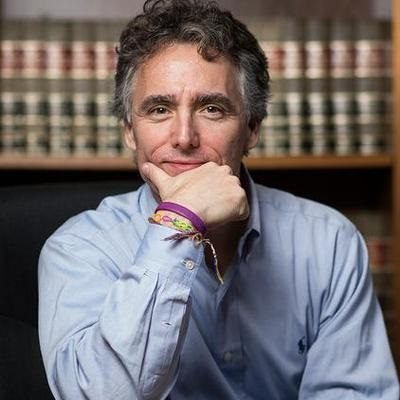
Dart wants free mental health care for first responders
Spread the love. From staff reports The Illinois Senate has passed legislation proposed by Cook County Sheriff Thomas J. Dart that eliminates out-of-pocket expenses for first responders seeking mental health treatment. “We ask first responders to be constantly exposed to traumatic and dangerous situations to protect us,” Dart said. “This legislation is a solid step…
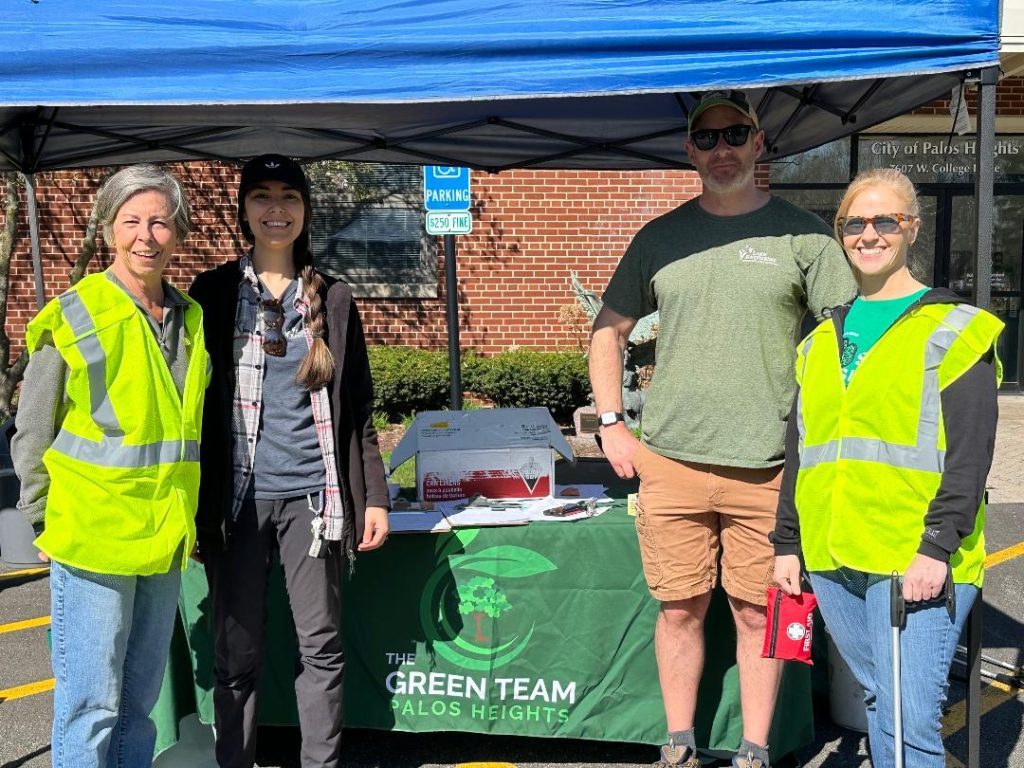
Volunteers give Palos Heights a spring cleaning
Spread the loveBy Kelly White Palos Heights works hard to keep its city beautiful. Gathering residents together for a day of cleaning and fun was the Palos Heights Green Team with a Clean Up Day on April 13. “This event invited everyone in our community to do their part in combating pollution by having a…

Hunt man who tried to rob Chase Bank
Spread the love. FBI looking for tips from public . From staff reports FBI officials are appealing to the public for help in finding a man who attempted to rob a Southwest Side bank branch. The bandit tried to rob the Chase Bank branch at 5687 S. Archer (just west of Laramie) at about 11…
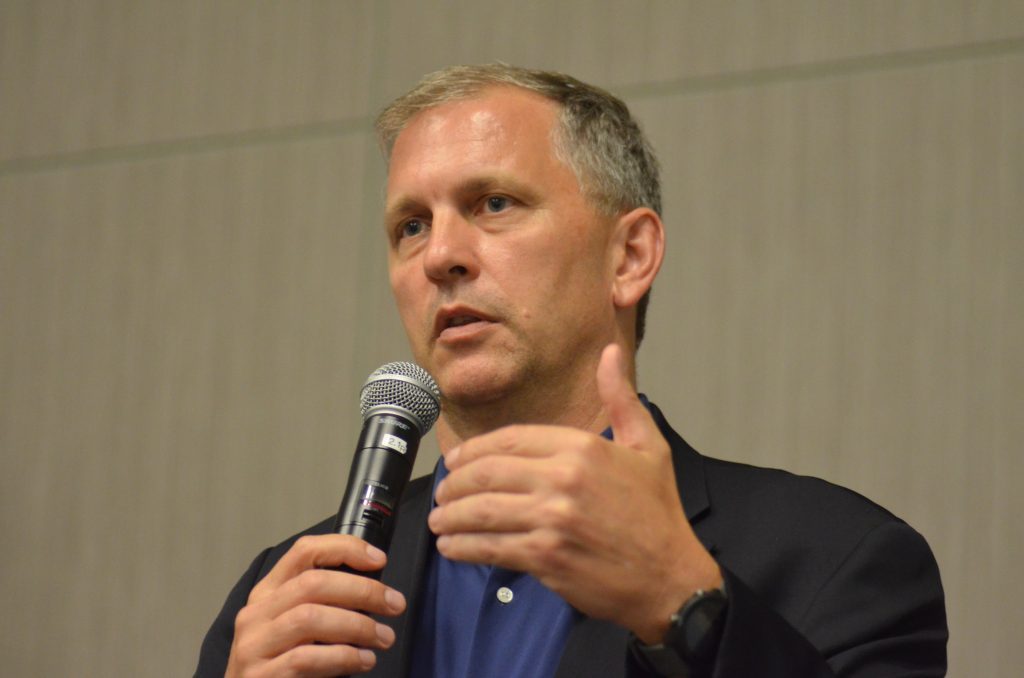
Casten lauds Biden for ‘clean energy’ move
Spread the love. From staff reports A move designed to spur the responsible development of clean energy on America’s public lands was recently lauded by U.S. Rep. Sean Casten (D-6th). The congressman, co-chairman of the House Sustainable Energy and Environment Coalition (SEEC) Clean Energy Deployment Task Force, joined by co-chairman Mike Levin (D-Calif.), released a…
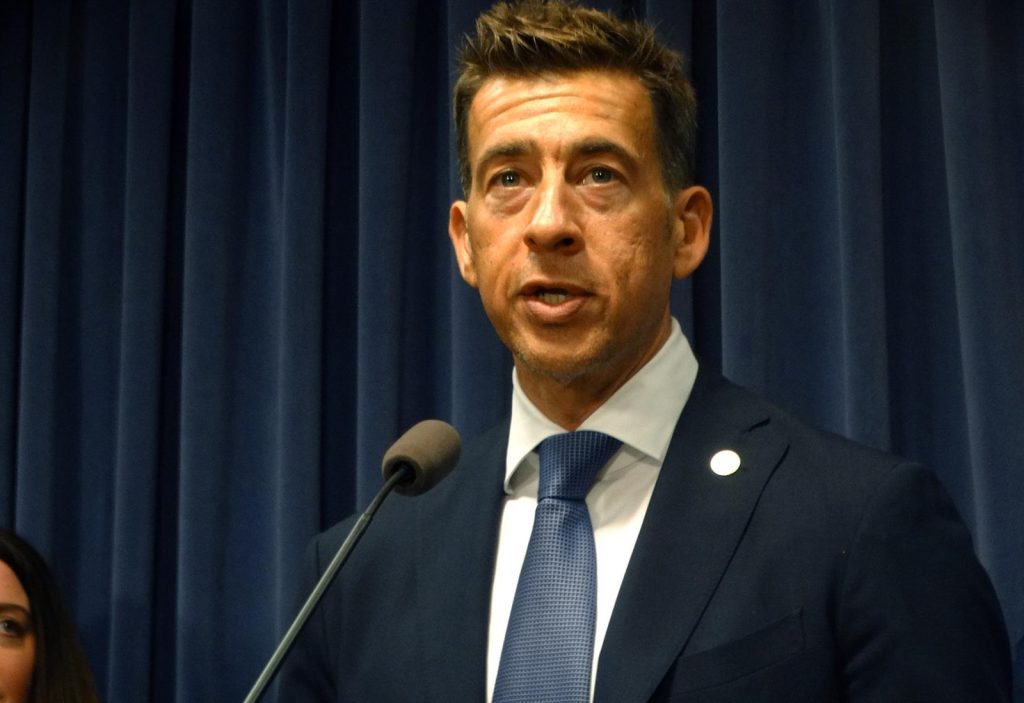
E-Notary makes things easier, Giannoulias says
Spread the love. From staff reports Illinois residents will no longer have to notarize documents in person under a new Electronic-Notary system administered by Secretary of State Alexi Giannoulias’ office. Electronic Notarization, or “E-Notary,” will radically change the way people and use notary services, Giannoulias predicted. Without leaving the home or office, an individual or…

Oak Lawn honor Fire and Public Safety Contest winners
Spread the loveBy Joe Boyle The Oak Lawn Chamber of Commerce presented awards to the winners of the 2023 Fire and Public Safety Coloring Book Contest at the Oak Lawn Village Board meeting on April 9. Fire Bureau Chief David Wheeler and Police Chief Daniel Vittoro were on hand to present the plaques, along with Oak…

Rashid scolds TV news orgs on climate change
Spread the love. From staff reports State Rep. Abdelnasser Rashid (D-21st) recently scolded major news organizations for what he called a lack of attention to climate change. “Last year was marked by alarming climate extremes, from record-breaking heat waves to devastating floods, droughts and wildfires,” Rashid wrote earlier this month in a letter to his…
Neighbors
Sorry, we couldn't find any posts. Please try a different search.





